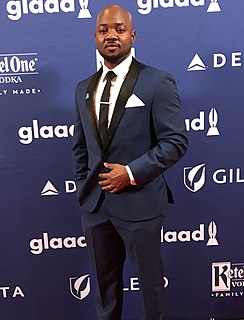A Quote by Dean Spade
'Normal Life' looks at the current moment in trans politics, understanding that it is often assumed that trans resistance strategies should mimic the lesbian and gay legal rights frameworks that have become so visible in recent decades.
Related Quotes
There are sharply different, competing models of what trans advocacy looks like - those that seek to follow the path laid out by the most visible and well-funded lesbian and gay rights organizations in the US and those that seek to use grassroots strategies, center issues of race and poverty, and aim to dismantle harmful institutions and conditions to redistribute life chances.
I wrote Normal Life using concepts that have been helpful to me, and hoping to offer those as accessible tools for thinking differently about the pitfalls trans resistance faces, in particular the temptation to focus on legal equality and the limitations of that approach, and the alternative approaches being taken by racial and economic justice focused trans activists.
I am arguing that it is a mistake for trans activists to focus our resources and attention on winning inclusion in legal equality frameworks, such as anti-discrimination laws and hate crimes laws, that will not provide relief from the life-shortening conditions trans populations are facing. Winning legal equality - getting the law to cast us as victims of discrimination who the state will protect - will not support our survival.
One particular debate that I have seen play out again and again is whether trans people who have more traditional gender expressions or who "pass" more should be the ones who are represented. A recent advocacy guide focused on advocating around trans health care access produced by the largest trans advocacy organization in the US instructs readers that advocacy will be more successful if the message is delivered by people who pass as non-trans men and women.
Many in the trans community are fed up with L.G.B.T. organizations that continue to erase trans identity or just give lip service to trans issues. We need our cisgender allies - gay and straight - to treat transgender lives as if they matter, and trans people need multiple seats at the tables in the organizations that say they're interested in L.G.B.T. equality; this absence has been painful since Stonewall.
When you hear anyone policing the bodies of trans women, misgendering and othering us, and violently exiling us from spaces, you should not dismiss it as a trans issue that trans women should speak out against. You should be engaged in the dialogue, discourse, and activism that challenges the very fibers of your movement.



























